The US primaries: a guide for the British – Zara S
- What are the Primaries?
The US presidential nomination process kicks off nearly a year before Election Day with primaries or caucuses in each of the 50 states. Primary elections involve residents casting ballots, while caucuses are local gatherings where voters openly decide which candidate to support. Out of the 50 states, 45 hold primaries, and 5 hold caucuses. These events can be open to all voters or closed, restricted to party-registered voters. The outcome determines the delegates each candidate receives, representing them at the national convention in the summer. The candidate with the most delegates at the party’s national convention becomes the presidential nominee.

2. Iowa’s Unique Role
Despite the majority of states opting for primaries, Iowa, a traditionally Republican state, holds caucuses to elect delegates. The Iowa caucus, a Republican-dominated state, has marked the beginning of presidential primaries since 1972.The unique nature of the caucus allows candidates to leverage momentum gained to their advantage in subsequent primaries, such as the New Hampshire primary earlier this week.
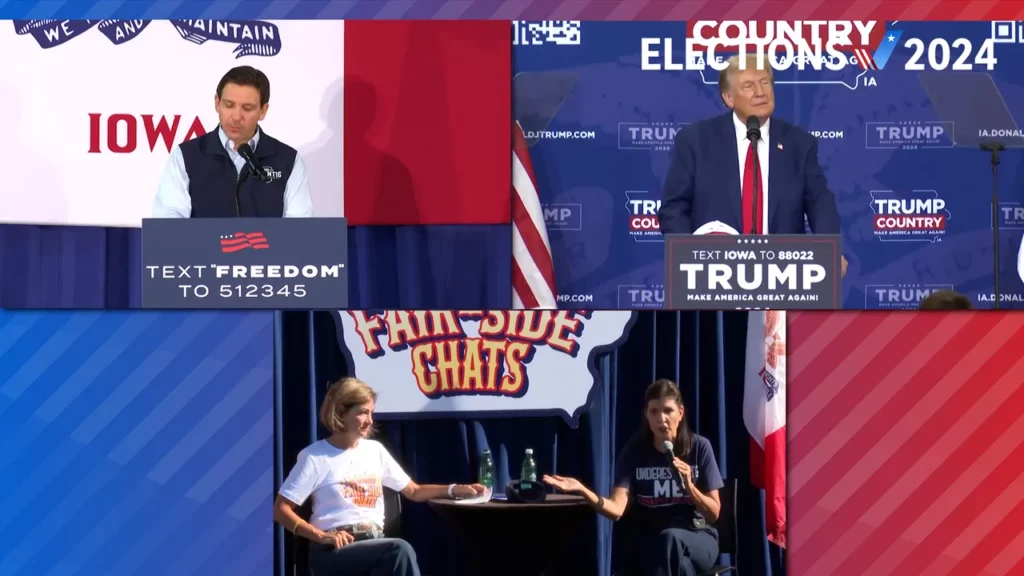
3. Trump’s Ballot Controversy
The Maine Democratic secretary of state and Colorado court have determined that based on the 14th Amendment and a clause section 3, that the former president has engaged in insurrection and therefore is disqualified from being on the primary ballots in these states. But these decisions are on hold as legal processes unfold. This means that Trump remains on the ballot in Colorado and Maine and his political fate now lies in the hands of the U.S. Supreme Court.
But what does this mean for trumps bid for the presidency?
Considering Trump lost Colorado in 2020, and the fact that he doesn’t need to win it again to win an Electoral College majority this year. However he did win one of Maine’s four Electoral College votes in 2020 by winning the state’s 2nd Congressional District, so this Supreme Court decision could have a direct impact on his odds in November.The rulings currently apply only to Colorado and Maine, and Trump might secure his party’s nomination without competing in these primaries. In terms of the general election, victories by Biden in both states in 2020 suggest Trump’s success may not hinge on winning these states.
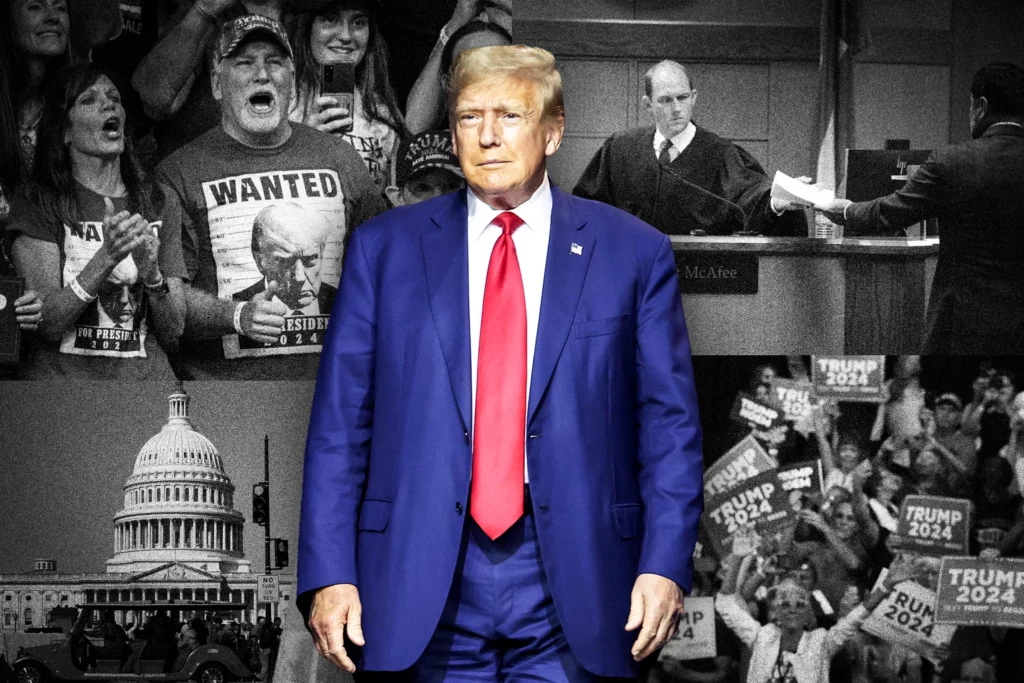
4. DeSantis dropped
Governor Ron DeSantis of Florida, once considered a strong contender, has dropped out of the Republican primaries in New Hampshire. however ahead of the primary he was polling in the single digits. Despite previous rivalry with Nikki Haley, who is now Trump’s closest rival, DeSantis acknowledged that a majority of Republican primary voters seem inclined to give Trump another chance.
“It’s clear to me that a majority of Republican primary voters want to give Donald Trump another chance,” – Ron DeSantis (video on X)
His withdrawal raises questions about his political future, given Florida’s term limits for governors of two years.
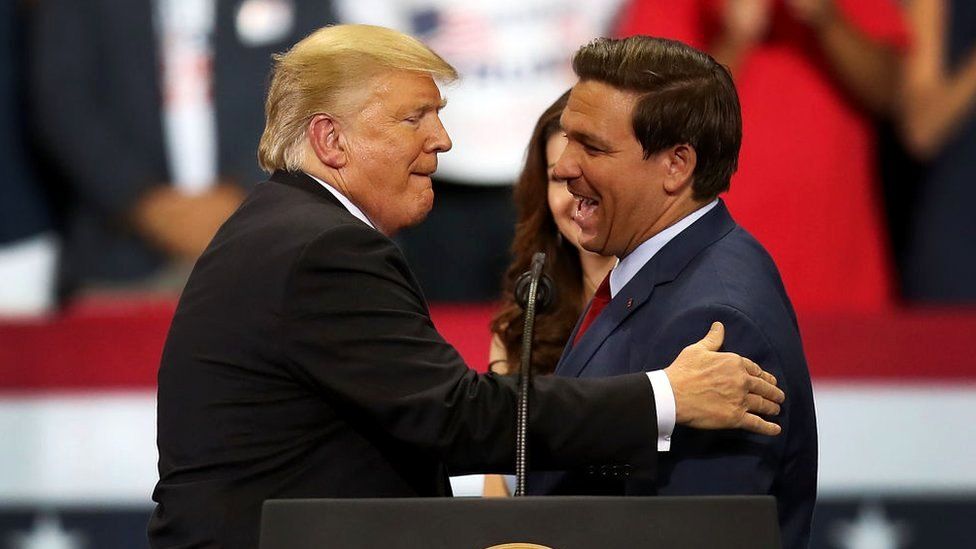
5. The Current Landscape
As of now, the Republican primary field has seen significant shifts, with Trump’s lead, controversies over ballot access, and notable dropouts shaping the landscape. The ongoing dynamics set the stage for a closely watched and competitive race in the lead-up to the presidential election. Stay tuned for further developments as the primaries progress.
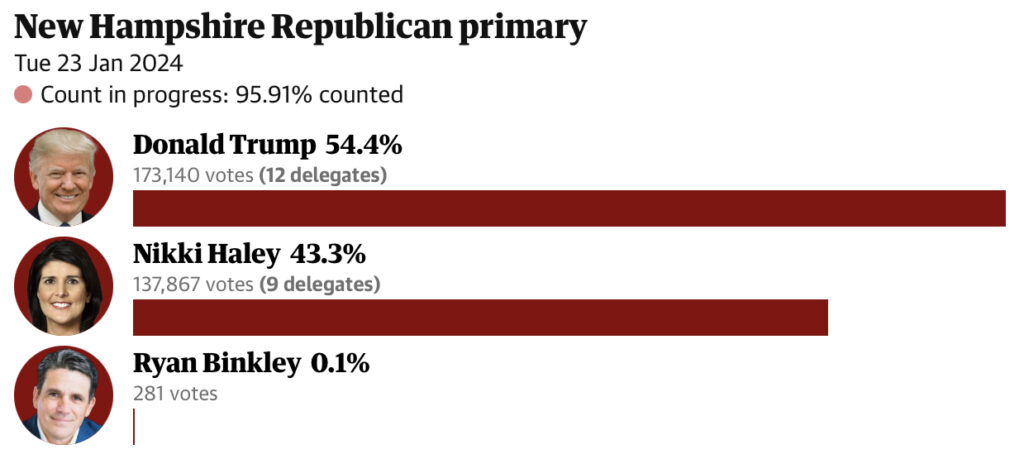
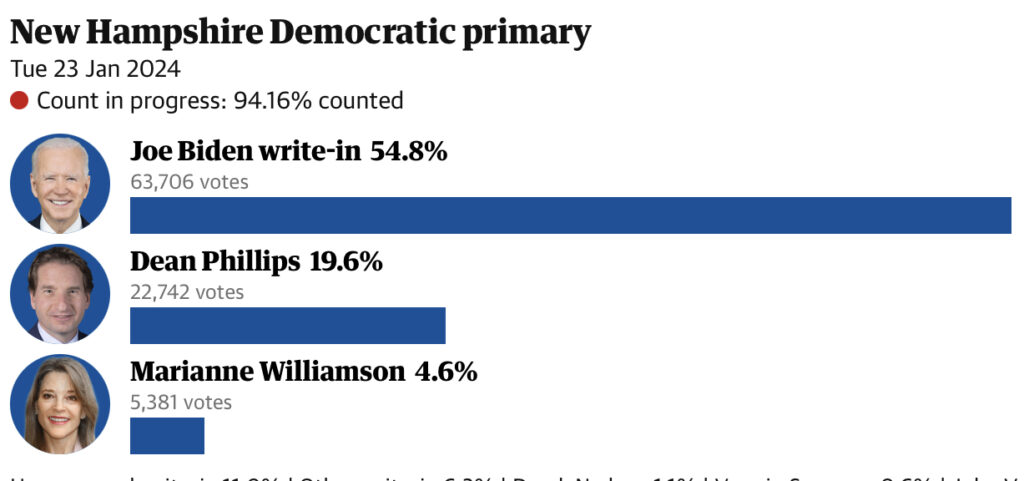
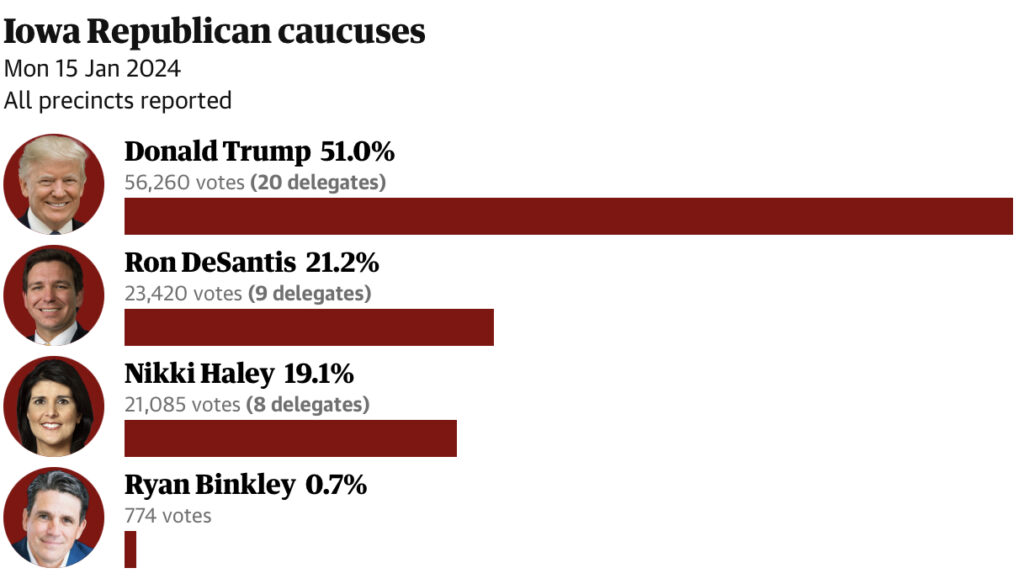
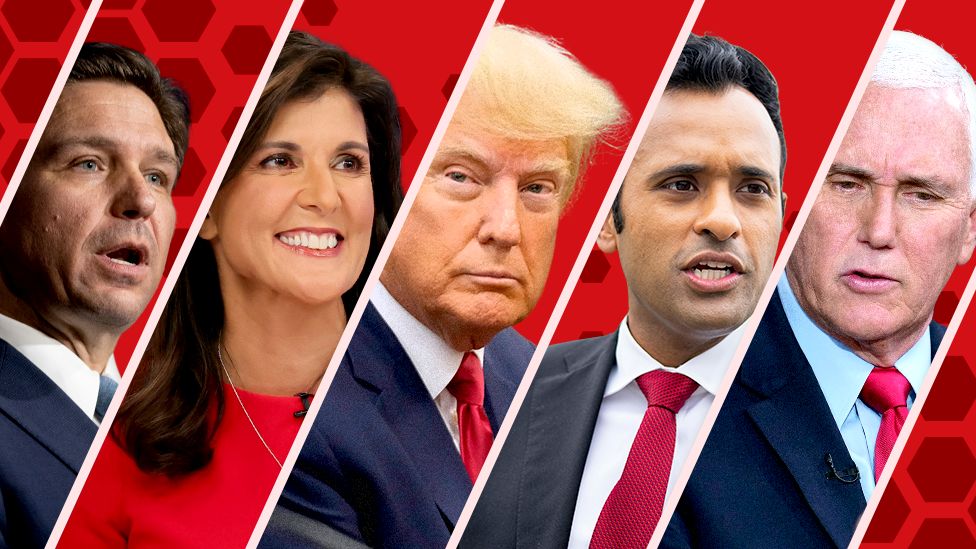














Post Comment
You must be logged in to post a comment.